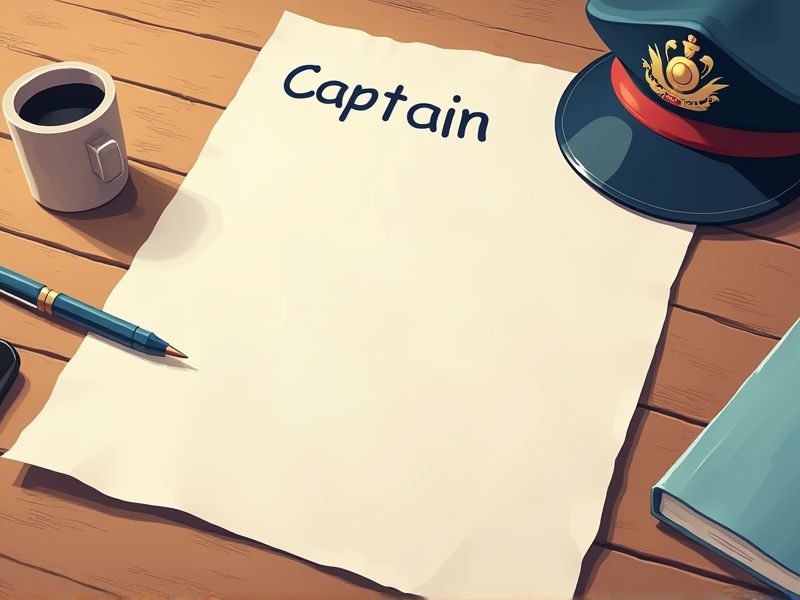
Cruise ship captains are responsible for the safety and operation of vessels carrying thousands of passengers, requiring specialized skills and knowledge. International regulations and maritime laws mandate specific certifications to ensure captains possess the necessary expertise. Certification programs cover navigation, safety management, and leadership, which are critical for handling the complexities of modern cruise ships. Key certifications a cruise ship captain may need include those in advanced navigation and ship security management.
Master Mariner License (Unlimited)
The Master Mariner License (Unlimited) is essential for a cruise ship captain because it certifies the capability to command vessels of any size across international waters, ensuring compliance with global maritime regulations. Holding this license indicates advanced knowledge and expertise in navigation, ship handling, and maritime safety, which are crucial for passenger safety on large vessels. The complex operational dynamics of a cruise ship require a captain with experience in managing diverse crew and emergency situations, skills honed through the licensing process. This license reflects a commitment to maritime excellence and is recognized as a benchmark by international maritime organizations and cruise operators.
STCW Basic Safety Training Certification
STCW Basic Safety Training Certification ensures that a cruise ship captain possesses the essential skills in personal survival techniques, promoting safety during maritime emergencies. Compliance with international maritime regulations requires this certification, thereby upholding a global standard of safety and competency. Possessing this certification demonstrates that the captain has been trained in fire prevention and firefighting, which is critical for passenger and crew safety. The certification also includes first aid and personal safety training, equipping the captain to handle health emergencies effectively.
Advanced Fire Fighting Certification
Advanced Fire Fighting Certification equips cruise ship captains with essential skills to manage and control fires on board, crucial for ensuring passenger safety. Fires at sea present unique challenges, such as limited retreat options and various potential ignition sources, making advanced training indispensable. Certification covers comprehensive strategies and the use of specialized equipment, preparing captains to respond effectively under pressure. Regulatory authorities require this certification to ensure safety standards are met, reducing risk and enhancing passenger confidence in maritime transport.
Proficiency in Survival Craft and Rescue Boats Certification
The Proficiency in Survival Craft and Rescue Boats Certification ensures that a cruise ship captain is prepared for emergencies, enhancing passenger safety. This certification provides essential skills in handling life-saving equipment, crucial during evacuations or rescues. In the context of maritime operations, possessing this certification demonstrates a captain's competency in complying with international safety standards. Without this certification, a captain may face operational and regulatory restrictions, impacting the ship's ability to operate safely.
Global Maritime Distress and Safety System (GMDSS) Certification
GMDSS Certification is required for a cruise ship captain to ensure they can effectively handle emergencies at sea, as the system enables critical communication during distress situations. The certification ensures compliance with international maritime safety regulations and helps prevent legal repercussions. It equips the captain with the knowledge to utilize advanced communication tools crucial for passenger and crew safety. Mastery of GMDSS enhances the captain's ability to orchestrate coordinated rescue efforts with other ships and coastal authorities.
Bridge Resource Management (BRM) Certification
Bridge Resource Management (BRM) Certification enhances a cruise ship captain's ability to effectively utilize all available resources, including crew and technology, for safe decision-making. It addresses human factors and communication skills, reducing the likelihood of errors that can lead to accidents. Certification ensures adherence to international maritime safety standards, which is crucial for the reputation and operation of cruise lines. Enhanced situational awareness from BRM training helps in managing complex navigational challenges faced during voyages.
Ship Security Officer (SSO) Certificate
The Ship Security Officer (SSO) Certificate is essential for a cruise ship captain because it ensures they are equipped to manage and respond to security threats effectively. This certification aligns the captain's skills with the International Ship and Port Facility Security (ISPS) Code requirements, crucial for maintaining passenger and crew safety. Having this certification also instills confidence in both the crew and passengers, knowing the captain is professionally trained in handling potential security breaches. Without the SSO Certificate, a captain may lack critical knowledge in executing security plans and protocols efficiently.
International Ship and Port Facility Security (ISPS) Certification
The ISPS Certification is required for cruise ship captains because it ensures enhanced security measures that protect against potential maritime threats. This certification mandates that captains are equipped with the expertise to assess and respond to security risks effectively. Compliance with ISPS fosters international confidence in maritime safety, essential for facilitating global port interactions. Adhering to these guidelines helps protect passengers, crew, and assets, solidifying the cruise line's reputation for safety.
Maritime Medical First Aid and CPR Certification
A cruise ship captain encountering medical emergencies at sea often lacks immediate professional medical assistance, necessitating proficiency in first aid and CPR to stabilize conditions. Cruise ship captains must provide immediate response during medical incidents, as maritime isolation delays access to shore-based healthcare facilities. Crew and passenger safety directly depends on the captain's ability to manage health crises aboard, thereby underscoring the importance of this certification. International maritime regulations often require certified training to ensure preparedness for diverse medical emergencies on vessels.
Crisis Management and Leadership Certification
A Crisis Management and Leadership Certification enhances a cruise ship captain's ability to effectively handle emergencies, ensuring passenger safety. With a diverse crew and passenger demographic, this certification provides essential skills for maintaining clear and efficient communication under pressure. The unpredictable nature of maritime environments demands a structured approach to crisis situations, which this certification emphasizes. Regulatory bodies often require such certifications to ensure cruise operators adhere to international safety standards.
Summary
You can gain increased trust in the captain's skills with certifications, ensuring safer navigation on the cruise ship. Passengers will likely experience enhanced comfort and security, knowing the captain is well-qualified. The cruise line may see improved reputation and customer satisfaction, attracting more bookings. The captain's career prospects could widen, leading to advancements within the maritime industry.
